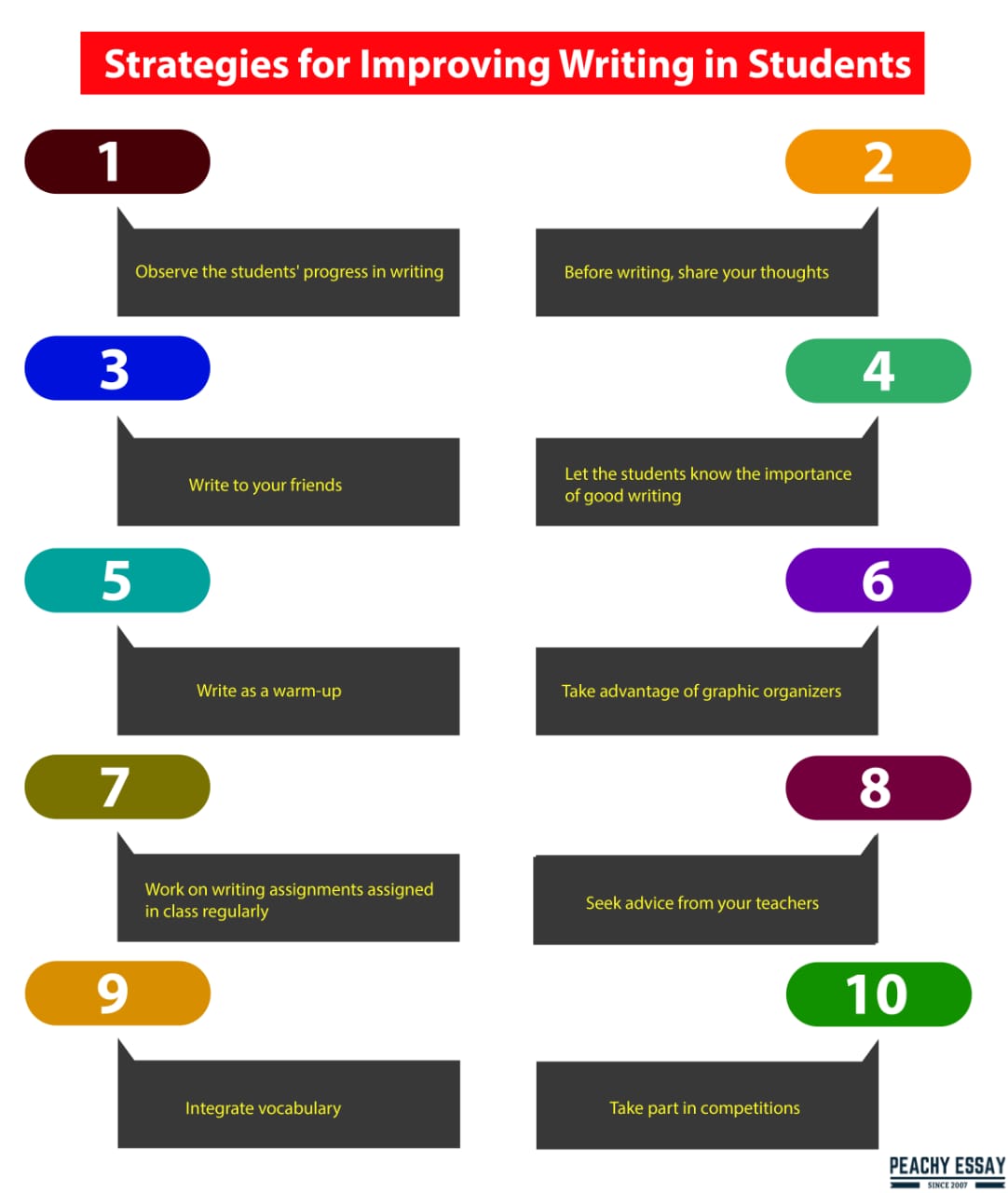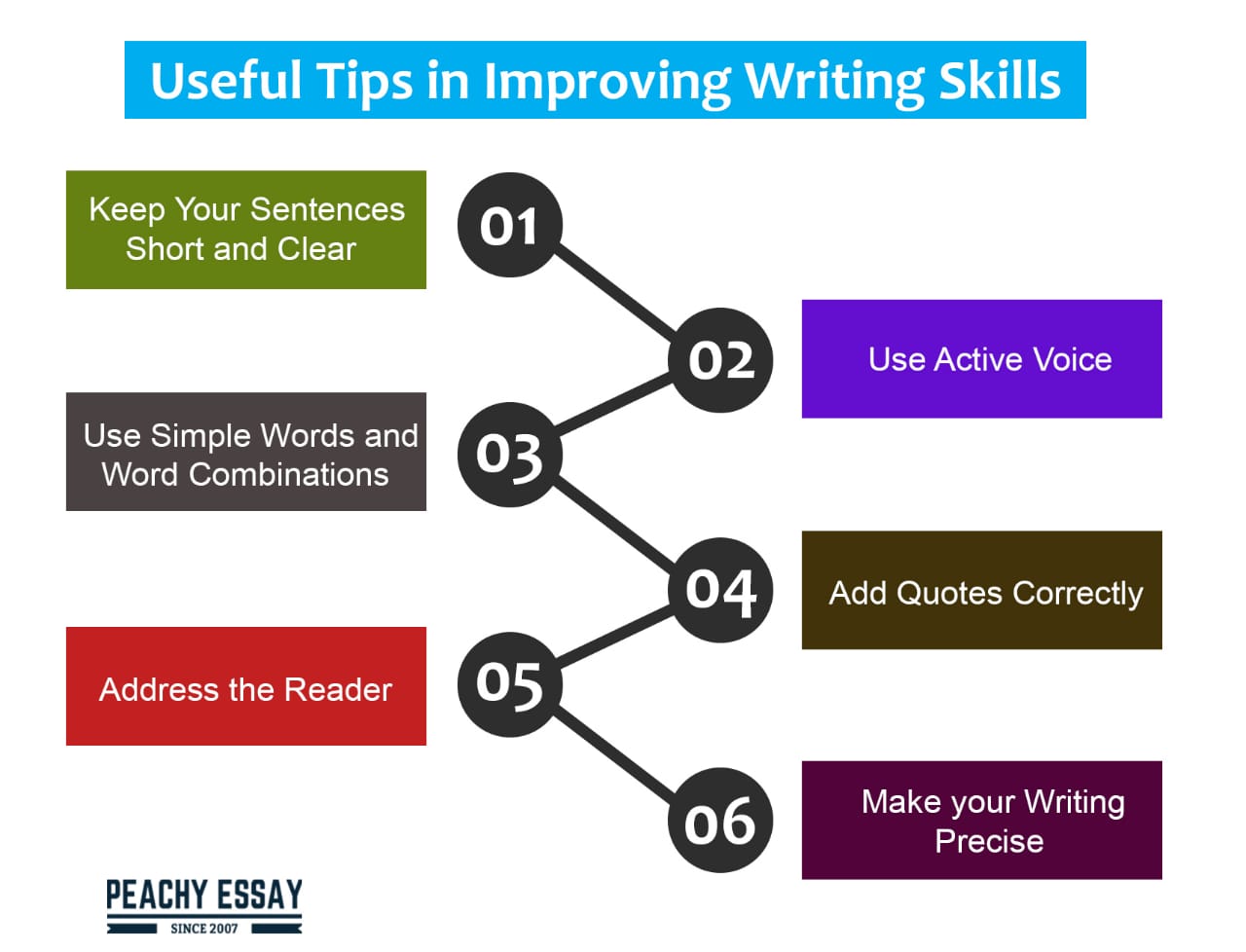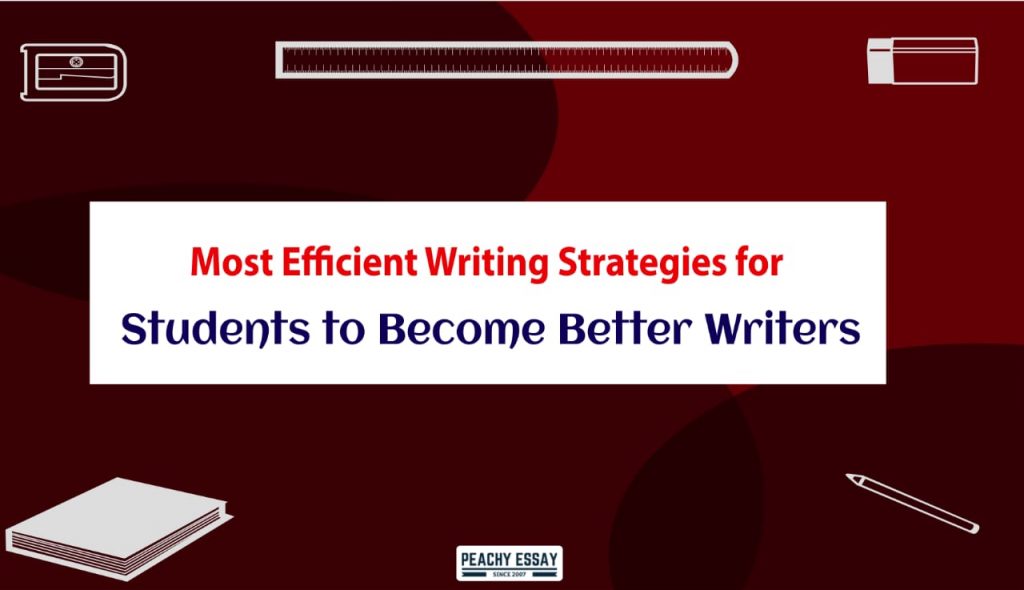Writers sometimes run into a block when they feel they can’t come up with anything important to write about. Such a block can hinder even the most talented writers.
When you are given a writing assignment, you may feel overwhelmed. Fortunately, students can use plenty of excellent strategies to accomplish their writing tasks efficiently and make sure they are writing something entertaining and informative.
If you have been providing academic writing like essay writing, it is crucial to get many excellent writing tips. Thankfully, in this blog, many writing techniques will help you improve your writing skills.
The Writing Process
The writing method includes generating ideas, arranging them into paragraphs, reading them, and then editing them. Each step of the writing process is followed until the writer is content that their purpose has been achieved.
Coming up with ideas
Knowledge of all subject areas is required for students to write about a topic, formulate thoughts, and find extra information. They do need skills to check if their writing is on topic and will serve their function. The students will need to explain their writing task and the steps they need to follow to finish the writing task expertly.
Arrangement and design
Students must understand how to write a well-structured paper when approaching any assignment. Students should understand how to begin with a strong, balanced introduction, connect ideas with enough evidence in logically linked paragraphs, and conclude with a good thesis in longer writing assignments.
Read and edit
Students need to learn how to evaluate their work and the work of others for text, clarity, form, and style and punctuation, grammar, and spelling errors. Ultimately, it is students’ job to assure the quality of their research, and they learn to support each other in improving their writing skills.
Writing Strategies for Students
At school, students should be given daily chances to write in all subject areas. Teachers must give clear guidance in all subject areas about writing and providing specific guidance regarding the writing process. This will allow the students to become better writers as they undergo their writing curriculum. The growth of a writer requires positive and formative input from subject matter experts and writing models in their field.
Here are the strategies for improving writing in students.

Observe the students’ progress in writing
Developing students’ writing skills isn’t just English department work alone. Writing is an important resource for learning a discipline, and so all teachers must assist students in this endeavor.
Before writing, share your thoughts
By exchanging ideas with peers, students might be inspired to develop new ones, even if they cannot think of any innovative content themselves. They may also benefit by taking a creative writing workshop or night class to meet like-minded people.
Write to your friends
You can join a group session in the classroom where everybody is actively doing collaborative writing before you start writing alone, practice writing with friends, and share your ideas.
Students who find writing challenging may benefit from having a writing partner who can provide positive criticism and input. When you find a writing partner, you can gain a sense of motivation to keep going in the right direction.
Let the students know the importance of good writing
Teachers who instruct students that good writing will be rewarded and bad writing will be penalized allow for better essays than teachers who make no such demands. Remind students from the first day, during the term, to make every effort to develop their writing skills.
Write as a warm-up
Warm-up writing every day can help you conquer your resistance and inspire your ideas to flow naturally. Without worrying about grammar or language, writing constantly gives you better content and more efficient channeling.
Take advantage of graphic organizers
Using a graphic organizer can motivate visual learners for writing. For visual learners, a story diagram is a great motivator for writing. Using image brainstorming helps the writer express himself more creatively, and it also helps to improve writing.
Work on writing assignments assigned in class regularly
Change the pace of the lecture course by asking the students to write for a few minutes during class. Open-ended questions, writing exercises, and homework give students the practice they need to improve their skills.
Seek advice from your teachers
With your professor, you can discuss the need for notes and outlines, narrow a topic and find out plagiarism.
Integrate Vocabulary
It is known that just learning a word once isn’t enough. Until a concept is understood, it must be heard, seen, and used repeatedly. The best place to begin learning a vocabulary is from writing.
Provide two or three words that students will likely use in their writing on the subject. Teach these words, illustrate them in sentences, and share sentences in which they were able to apply them.
Before students write the rough draft, you can teach the words or show them before students study. It may be useful to keep a record of those words in a notebook.
Take part in competitions
Competition is good for students. They should compete against one another and with their peers too. This is one of the best writing strategies for students to develop their writing skills.
Writing Tips
Here are some writing tips that also help in improving your writing skills:

Keep Your Sentences Short and Clear
It’s imperative to deliver your message quickly to impress readers. There is no time to waste by rambling on about irrelevant details, so keep all of your sentences brief and to the point. They should not exceed 35 words. The main emphasis should be on nouns and verbs.
Use Active Voice
It is imperative for your writing to be more helpful to your users. When you speak to them directly, they will feel more relaxed. This is why you should use active voice. By using it, content is more engaging.
Use simple words and word combinations
Simple and short sentences allow you to deliver your message more quickly and with greater efficiency.
There is no point getting short sentences when those words would only be used by people who do not need to look up their everyday meanings, especially when scanning through text.
When you fail to score high marks on your writing, try to simplify the word choices. With clearer language, the meaning itself is easier to grasp.
Add quotes correctly
The most effective way to improve your writing or make your point is to exchange thoughts or quotes from other people. However, the infamous quote offers no help at all. That is why we need quotes that are as powerful as possible.
Address the reader
The only way the reader will appreciate your writing is to tell them in person. Never refer to the person by their initials. Always refer to them by “you.” This is easy to follow and will make your reader feel they are sitting next to you.
Make your writing precise
Keep your sentences short and to the point while providing enough details for your reader. This writing rule appears to conflict with the first one.
The key thing to remember is that writing more accurately can help you share your ideas with the readers. Stay focused and make sure the information you present is timely. Being accurate in your writing helps you communicate your ideas with the readers.
What Strategies do Good Writers Use?
Here are the writing strategies that can help you snag your readers and keep them interested.
An Engaging Opening Sentence
There is a reason why this is one of the most effective writing strategies on this list. Make sure readers are interested in your topic, so write something captivating that will hook them.
For example, “Have you ever seen a movie with a scene that is off, so out of nowhere that it throws you off the plot and back into reality?”
Almost everyone has seen a movie, almost everyone has had a similar experience, and it offers an excellent backgrounder to the general subject matter.
The Opening Paragraph: A Sense of Direction
A great opening paragraph is like a travel itinerary. It explains exactly where the reader is going and what they can see. Write it creatively or straightforwardly, but make sure it’s clear.
A Tone of Sincerity
Authenticity and the ability to convey your passion and authority in a subject are crucial when writing publically. Readers tend to distrust those who fail to demonstrate a genuine knowledge of the subject or deviate from the line.
Speak to Your Audience
Is your article being read by someone of the right age? Do they have a family? Are they starting a career? Getting to know why someone is reading your article is a great way to find out how to appeal to them, most importantly, on an emotional level.
Example: “Safety is your family’s top priority. Our tips will assist you in keeping everyone healthy and safe whether you are traveling this season or staying home.”
The Value of an Outline
The outline is an effective writing strategy you learned during freshman composition class, and it’s just as important today. This will help you reach point A to point Z by not deviating from the main point, so be sure to plan out your message before writing an article.
Have Fun
A crucial writing strategy yet rarely discussed is finding something of value to write about will make your content sparkle. You should find something you can enjoy writing about or at least find value in writing about it. That way, your content will stand out.
Open a Dialogue
If you spoke to a group of people in person and expected them not to converse with you, do not do that in your writing. You’re conversing with readers when you write a blog post or article.
Example: “These are just a few ways I keep my office organized. I’d love to hear about yours!”
Timing is everything
With the internet oversaturated with topics, you need to be on top of things. If your topic is old, put a new spin on it. If your content is old, you need to present it in a contemporary light.
Example: Ten things you have in common with ancient Egyptians.
Be Clear
Great writing is like a clear pane of glass, and clarity is the mark of a good writer. Don’t try to fool the reader. Tell them what you intend to say and explain using simple language.
Practical Tips to Become a Better Academic Writer
The difficulty of academic writing often concerns graduate students. This concern, however, can be minimized. Students can learn many tips to become a more skilled academic writer. Among these skills understands how the writing process can help individuals with academic or professional careers achieve a greater level of writing proficiency.
Here are the tips for a better academic writer
Work on the Main Idea
Here is the angle of the paper and the argument you are making. For example, if you want to argue for three benefits of stem cell research, you should focus on developing and supporting those benefits.
Research
Collect as many resources as you can. By reading more resources, it will be easier to brainstorm. The research will also help you find the best evidence to support your claim. The more resources you can use, the stronger your argument.
Audience
A crucial aspect of writing is the audience. A research paper is meant to convey knowledge and information to the reader effectively. Therefore, keeping the audience in mind will keep you focused on effectively and clearly stating your own ideas.
Organization
You need to organize research papers so that each idea follows a clear progression of ideas. Without this clear progression, your argument may become unclear. Keeping your argument focused can help clarify your arrangement.
Have a Plan
In the beginning, ensure that you understand the research project and contact your professor with any questions you may have. Second, brainstorm with many ideas in mind. Third, create a clear outline. Your paper will be much easier to organize if you do this and simplify it.
Read and Write…Often
Learn how to become a better writer by practicing purposefully. Reading a lot about the subject and taking notes will help you attain your goals. Also, developing a clear writing schedule is crucial to becoming a proficient writer.
Read, Edit, and Revise
Your paper needs to be read and reread each time you edit. Don’t just skim your paper — make sure you check every aspect of your paper when you edit. In revision, you will have an opportunity to find and correct any errors that might weaken your argument.
Things to avoid when drafting academic papers
Plagiarism
In academic writing, plagiarism occurs when you use another researcher’s work and try to pass it off as your own, which is a grave failure. That is why you ought to know how to cite others when using their work for support accurately.
Language and Grammar
For those who are learning English as a second language, language and grammar are challenging aspects of writing. When writing, make strong statements by avoiding the passive voice.
Spelling, grammar, and punctuation errors could undermine your argument. In case you have concerns about the grammar or language in your paper, you can ask a friend to review it and help you correct it.




